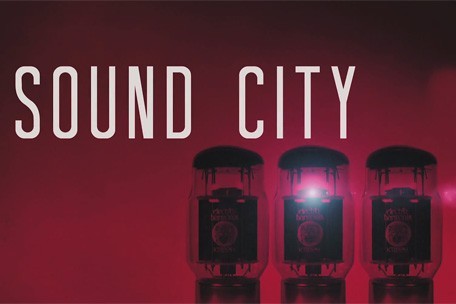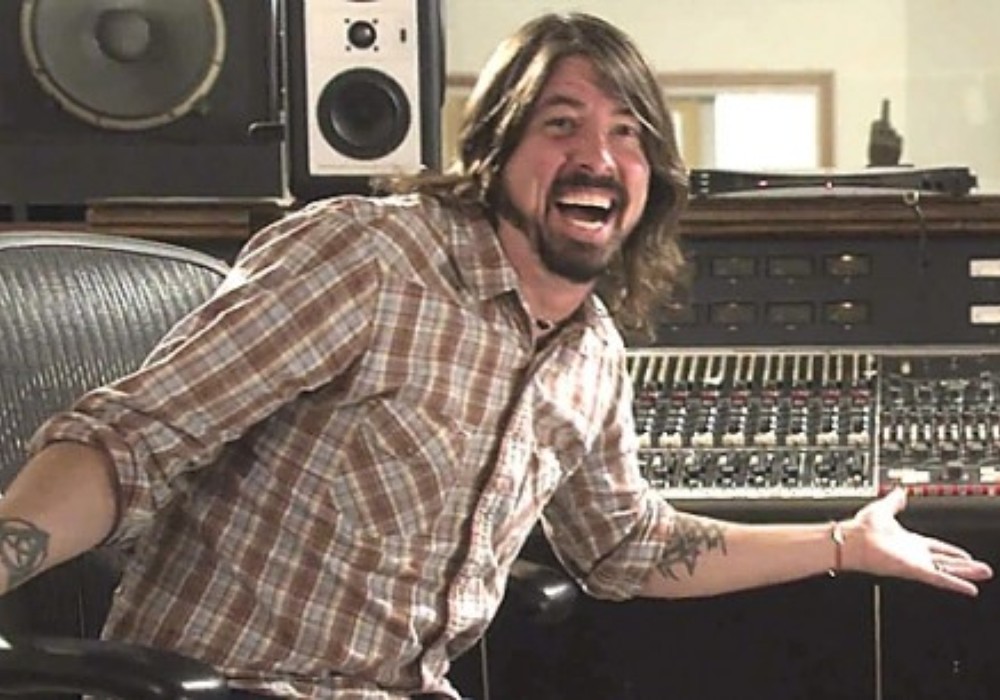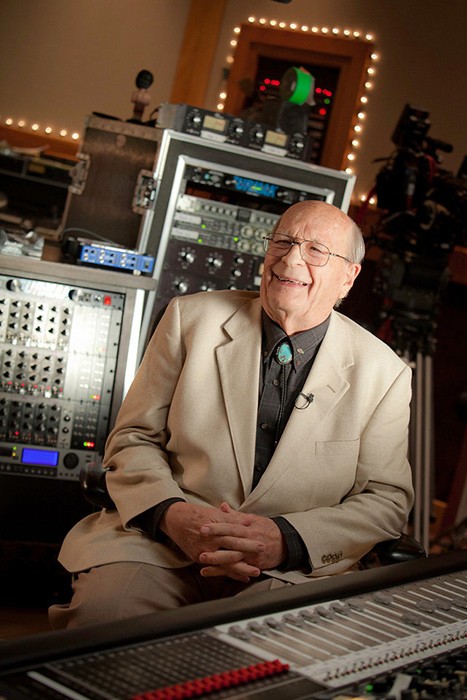Everyone has been talking about Dave Grohl’s new documentary Sound City a lot lately. That’s cool; it’s a fun romp of a movie, even if Dave can’t decide whether he’s making a film about a Neve console, a dying studio, a rock star jam session or an anti-Pro Tools rant.
I don’t want to rag on Dave Grohl – he’s always seemed like a straight up dude, comes from the same underground world as so many of us did, and heck, he really is one hell of a drummer. And I loved watching Sound City; it’s full of the same nerd-heaven stuff that we cover in Tape Op. I mean, just the fact that Rupert Neve gets a cameo here (albeit with silly “thought bubble” graphics superimposed over Dave’s noggin) is a real treat. One thing that’s confusing is that Grohl seems to be attributing the arc of his career to the magic in a Neve console. As wonderful as they are, that strikes me as a bit misguided. But where I have some real issues is with some of the implied messages that Dave attempts to deliver throughout the film.
Why did Sound City Studios ultimately choose to shut down operations? We know that the music business has been gutted by piracy, stupid major label practices, and a greedy tech sector. We know that millionaire rock stars have built their own private studios with equipement they’ve scavanged from said studios – you know, the same studios that no longer get those $400,000 recording budgets. And we know that a private studio owned by such a rock star doesn’t have to show the same profit as a studio run as a commercial business.
But, instead of telling us the real story behind Sound City closing, we’re told that what has fucked up the music industry is the evil of Pro Tools, because Pro Tools allows untalented people to make records. Untalented people have always made records, and the entertainment business has always propped up pretty faces as artists. During the film we’re also told that Pro Tools allows people to avoid using a real studio, as if that’s what killed off Sound City. And yet they did keep that studio rolling for many years after Pro Tools came out…
The final capper is that we’re told that Sound City didn’t buy a Pro Tools rig. Nick Raskulinecz, who’s a great guy, even implies (probably a bit out of context) that Sound City wouldn’t spend $20,000 on a Pro Tools rig. Really? They had obviously dropped $80,000 a piece for new Studer 24-track tape decks at some point. And, um… what about the early Pro Tools rig they used to “fix” Nirvana’s “Something in the Way”? I’m sure they rented that rig, or even had one on permanent rental at the studio. Remember that era? Everyone was buying Pro Tools rigs so they could rent them back to studios and sessions. (You know, Nirvana should have scrapped that awesome take anyway if they couldn’t play it for real to tape in the studio, right?)
Back to the top: Pro Tools killed Sound City? Tape and a Neve console is GOOD and Pro Tools is BAD? That’s, in part, what I took away from watching this documentary. There is no tape deck that magically makes records sound awesome, it’s how you choose to run your sessions. It’s who you hire to record and produce you (like the mighty Butch Vig). I fucking love my tape decks, but you know what? I don’t tell every session they need to use tape. A wonderful reel of ATR 2-inch tape will set you back $318 plus shipping. If you run that at 30 ips you’ll need 3 reels to track an album, and that’s if you don’t keep any alternate takes. Most of my clients can’t afford the extra $1000 these days.
Making the many decisions about how you wish to record your own music is important, but to push one of your decisions down other people’s throats is unnecessary. Dave getting up at the Grammys last year and addressing the “human element” in music was wonderful – but implying that you need a tape deck to capture the human element is incorrect and misleading.
I’m sorry for having to point all this out, and I really do give Dave Grohl props for knowing what works for him in the studio. He keeps his eye on the real prize – the joy of making great music, as well as capturing compelling, exciting performances. And I’m glad he made Sound City because it’s a fun movie to watch; and it might even inspire other musicians to think about how they approach their own creativity. But damn it, I want the whole world to understand that all of the choices made in the studio have an impact on the outcome of a session, and it’s never as simple as saying “tape over computers.”
Post Script:
For anyone telling me I’m off mark because there are not specific quotes or such in the film, please keep in mind that a film tells a story through the different scenes and the order they come in. If a film shows a studio shutting down and a studio manager out of work and with no health care (audiences were certainly left wondering what happened there) and then the film talks about Pro Tools and how it has changed recording and the music industry, what do you think people walk away assuming? I’m not talking about recording geeks and people deep inside the music biz, I’m talking about average viewers.
From the new Us Weekly (yes, I know it’s shit journalism but that’s kinda the point here): “Bravo to Dave Grohl for directing a documentary with a staid topic – how digital recording shut down beloved music studio Sound City…”








